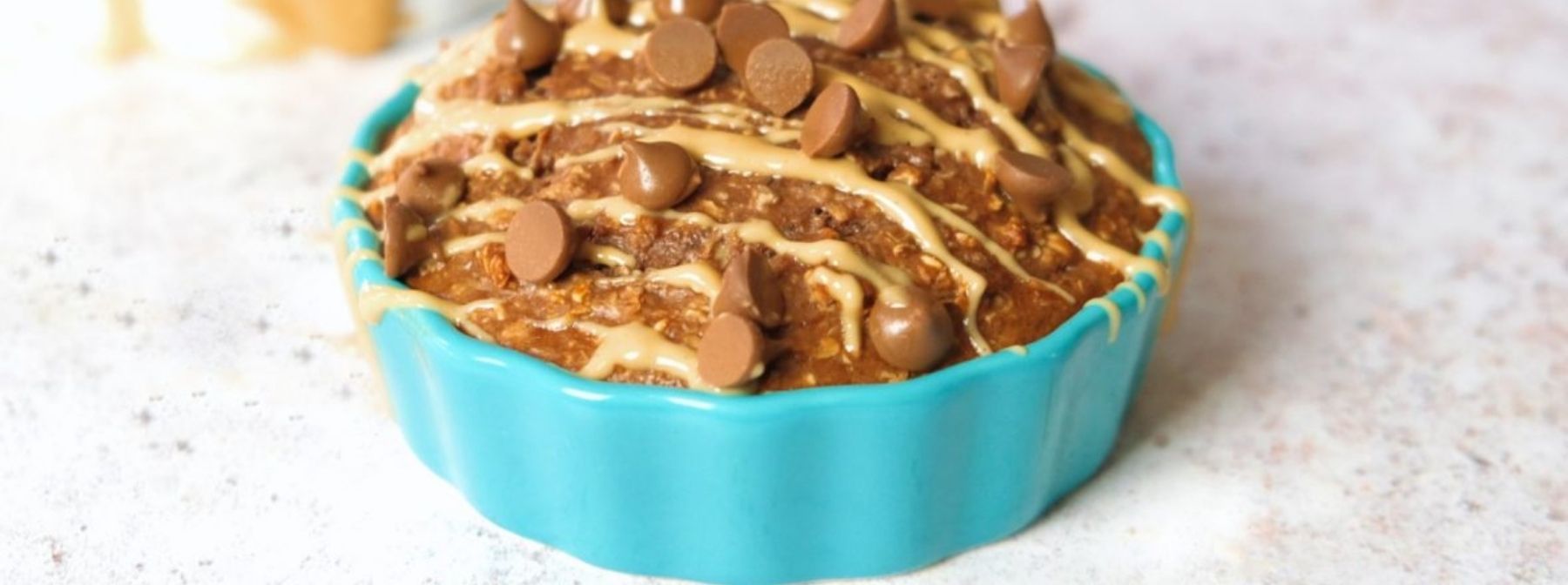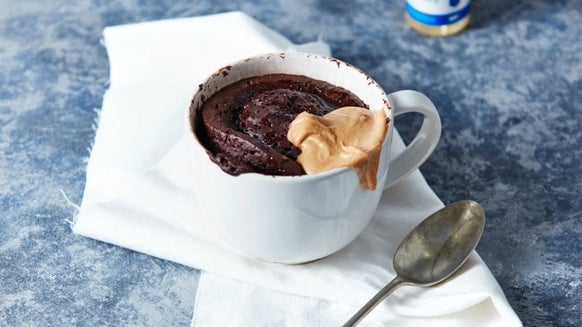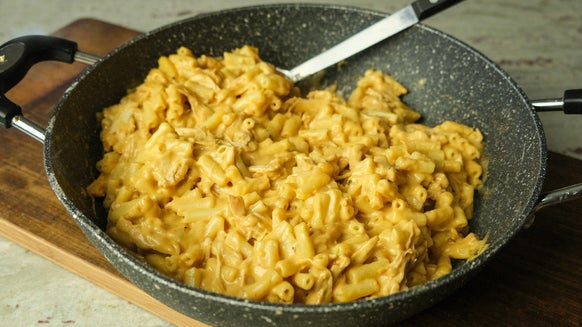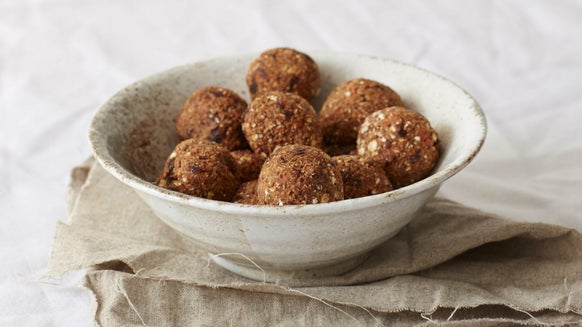6 Peanut Butter Health Benefits & How You Can Sneak More PB Into Your Diet

When you think of peanut butter, you might consider it just a last-minute lunch for a quick sandwich, but it has much greater potential. Peanut butter is a uniquely energy dense spread that contains lots of protein and healthy fats, and is used in many different eating plans to meet a variety of goals.

Peanut butter benefits
1. Peanut butter is a good source of plant-based protein
2. Peanut butter is a good source of healthy fats
Like protein foods, foods with fats make you feel full and can limit overeating. The fats in peanut butter are primarily unsaturated (both polyunsaturated and monounsaturated), which means they are good for your heart health and good cholesterol.
3. It contains many vitamins and minerals
Peanuts (and peanut butter) contain a variety of vitamins and minerals, but a few to note are potassium, phosphorus, magnesium, zinc, and Vitamin B6.
Potassium is key to keeping many of our systems healthy, including our heart, kidneys, and muscles.1 Phosphorus is a component of our bones and teeth and is required to make the energy our cells need.2 Magnesium is an important part of the process of building muscle, as well as our nervous system.3 Zinc is crucial to keeping our bodies healthy by supporting our immune system and helping wounds heal.4 Vitamin B6 is crucial to brain development and metabolism.5
4. Peanut butter is a great source of energy
Being both high in fat and protein, peanut butter packs a lot of nutrition and calories into a small serving size. It’s great for endurance activities, like hiking, when you need to take in calories to keep your body properly fuelled without eating a large, heavy meal.
5. It's easy to take peanut butter on the go
Unlike many sources of protein, peanut butter can be stored at room temperature and has a long shelf life, making it easy to take to the gym, leave at work, or have on hand for a quick boost of energy any time of day.
6. Peanut butter works for any meal or snack
Peanut butter can be incorporated into breakfast, lunch or dinner. Not only does it pair well with bread, pretzels, and crackers, but it’s good mixed with yogurt or apple sauce, on fruit or vegetables, in smoothies, and even on noodles or meat for dinner.
How these benefits can help you
1. You will get an energy boost
2. You should feel fuller
The high fat and protein content in peanut butter is very satiating — it slows down the digestion process and makes us feel fuller, for longer. Adding peanut butter alongside a source of carbohydrate — like crackers, or apple slices — provides a full balance of protein, carbs, and fat for a much more satisfying snack than the fruit or crackers alone.
3. You can take control of your weight
Peanut butter can be a satisfying part of your meal plan if you’re trying to cut calories (as long as you limit the portion), or a delicious way to increase your energy intake when trying to bulk up. With its full nutrient profile containing healthy fats and proteins, it can be used in any meal plan.
Our peanut butter recipes to boost your diet
Peanut Butter and Jelly French Toast
Peanut Butter Chicken Curry
Peanut Butter Sesame Chicken

Easy Peanut Butter Flapjacks
Peanut Butter Stuffed Protein Cookies
Peanut Butter Banana Brownies
Peanut Butter Jelly Cookies
What is in Peanut Butter?
The USDA has the following nutrition information for 100g of smooth, creamy peanut butter with salt added. Nutrition facts can vary based on whether the product has added sugar, salt, or oils, so it’s important to check the labels before purchasing, because the numbers can be different.
Some brands offer peanut butter with no added ingredients other than roasted peanuts, but most include some type of oil for spreading - which you will see in the ingredients list.
Nutrition Facts
Calories: 588 Fat: 50g Saturated Fat: 10g Sodium: 460mg Carbohydrates: 20g Fibre: 6g Sugar: 9g Protein: 87g
Peanut butter nutrition: how do our supplements stack up?
Most supermarket brands of peanut butter add sugar, salt, or oils to their products to make them last longer on the shelf and taste sweeter. However, Myprotein peanut butters are the real deal — none of those extras added.
All-Natural Peanut Butter
Myprotein All-Natural Peanut Butter is a great low carb option with no added salt, sugar, or oils — it contains ONLY peanuts, giving you 100% of the pure power of peanut butter.
- Calories: 579
- Fat: 46g
- Sodium: 0mg
- Carbs: 12g
- Fibre: 8.5g
- Sugars: 6g
- Protein: 30g
Take home message
Peanuts, and peanut butter, are one of the most nutrient-dense plant-based foods you can include in your diet. With our recipe ideas and variety of peanut butter options, you might just find a new favourite meal. Whether you want to add protein for muscle building, healthy fats for your heart, or a boost of calories for energy, peanut butter is a versatile way to meet your goals.








